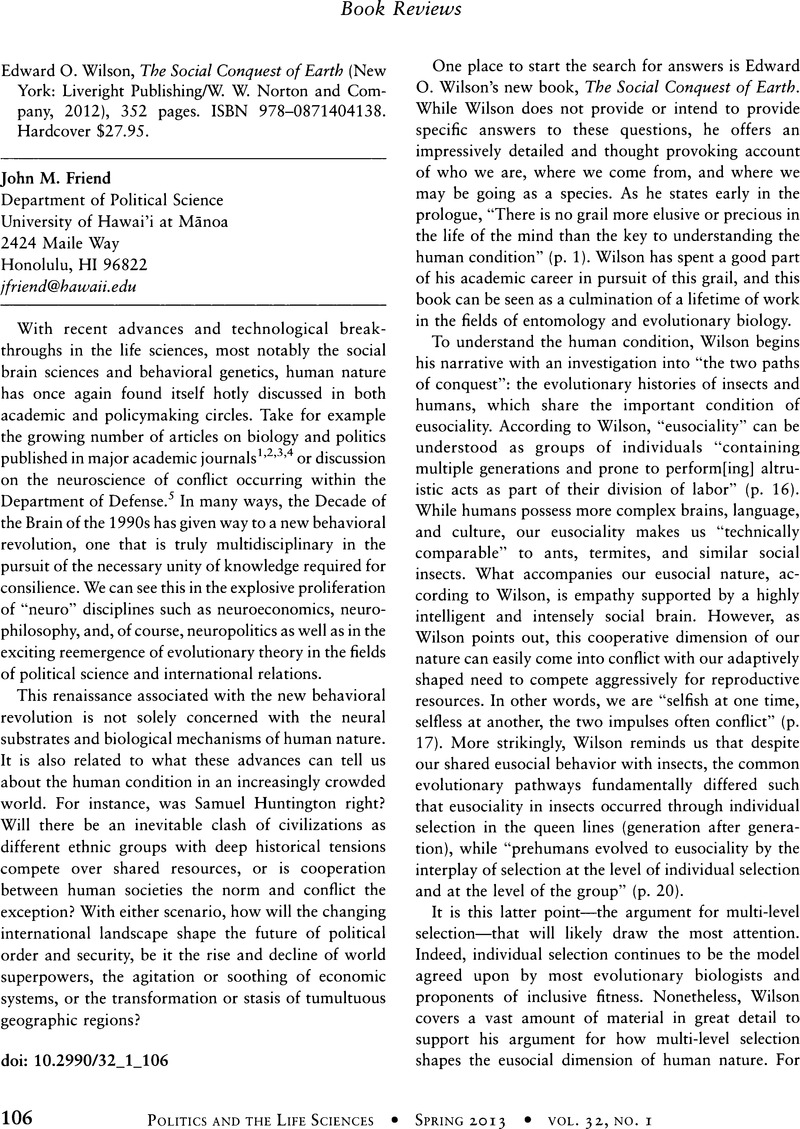No CrossRef data available.
Article contents
Edward O. Wilson, The Social Conquest of Earth (New York: Liveright Publishing/W. W. Norton and Company, 2012), 352 pages. ISBN 978-0871404138. Hardcover $27.95.
Published online by Cambridge University Press: 18 January 2016
Abstract

- Type
- Book Reviews
- Information
- Copyright
- Copyright © Association for Politics and the Life Sciences


